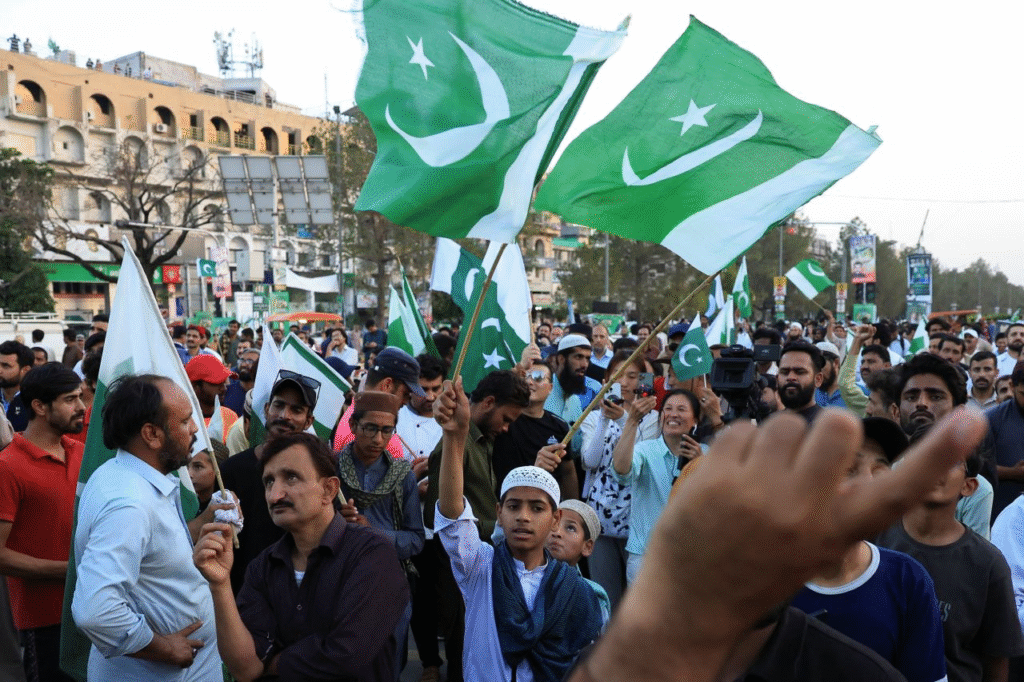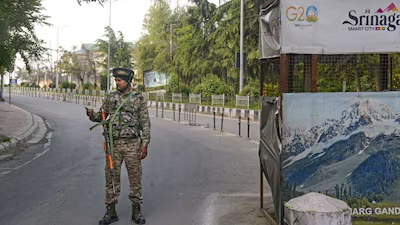
Introduction: A Game-Changing Declaration
On May 9, 2025, Mir Yar Baloch, a prominent Baloch nationalist leader, made an extraordinary announcement that could significantly alter the political landscape of South Asia. With a strong commitment to the cause of Balochistan’s independence, Mir Yar Baloch declared the region’s separation from Pakistan, igniting a fresh wave of debate and discussion across the world. His declaration marks an intense escalation in the long-running Baloch struggle for self-determination, which has remained a thorn in Pakistan’s side for decades.
Historical Context of Balochistan’s Struggle for Independence
To understand the magnitude of Mir Yar Baloch’s declaration, it is essential to delve into the historical context that has shaped the region’s complicated relationship with Pakistan. Balochistan, the largest province of Pakistan, is located in the southwestern part of the country, bordering Iran and Afghanistan. Historically, Balochistan has been a region defined by ethnic diversity, with a rich history that spans centuries.
At the time of the partition of British India in 1947, Balochistan found itself at a crossroads. The region, which was originally a part of the British Raj, was a separate political entity with its own distinct identity. However, following the partition, Balochistan was annexed by Pakistan in a controversial move, with the people of the region having little say in the matter. This set the stage for decades of unrest, as Baloch nationalists began to push for greater autonomy and, eventually, independence.
The Balochistan independence movement has faced fierce opposition from successive Pakistani governments, which have employed military force and political maneuvering to maintain control over the region. Despite this, Baloch separatist groups have continued their campaign for independence, often using armed resistance and political advocacy to make their case.
The Road to the Declaration of Independence
Mir Yar Baloch’s declaration is not an isolated event but rather a culmination of years of struggle and frustration. The Baloch people have long claimed that their rights have been ignored by the Pakistani government, particularly in terms of economic development, political representation, and cultural autonomy. Despite Balochistan being rich in natural resources such as natural gas, minerals, and oil, the province has remained one of Pakistan’s poorest regions, with its people often excluded from the benefits of these resources.
The most recent wave of unrest can be traced back to the early 2000s, when Baloch nationalist movements gained significant momentum. The Pakistani government’s response to these demands, which included military crackdowns and suppression of dissent, only further alienated the Baloch people. Activists, intellectuals, and ordinary citizens alike have demanded greater control over their resources and political autonomy, setting the stage for Mir Yar Baloch’s formal declaration of independence in May 2025.
The Declaration of Independence, posted on social media and disseminated widely in multiple languages, calls for the immediate recognition of Balochistan as an independent republic. In his message, Baloch expressed a desire for a peaceful transition to sovereignty, urging the United Nations to support the region’s right to self-determination. Additionally, he called for the establishment of a Baloch embassy in New Delhi, symbolizing the growing support for the Baloch cause from some sections of Indian society.
The Global Impact: Reactions from Pakistan and Beyond
The global community has responded to the declaration with mixed reactions. Pakistan, unsurprisingly, rejected the independence declaration outright, labeling it an unlawful attempt to disrupt the country’s territorial integrity. Pakistani officials have reiterated their stance that Balochistan is a part of Pakistan and that any attempt at separation will not be tolerated. The Pakistani military has warned of severe consequences for anyone involved in promoting separatism in the region, further escalating tensions.
The Indian government, while not officially recognizing Balochistan’s independence, has expressed support for the Baloch people’s human rights. India has long been sympathetic to the Baloch cause, with public opinion in India generally leaning toward support for Balochistan’s self-determination. However, India remains cautious in its official stance, aware of the sensitive nature of its relationship with Pakistan, particularly given the historical tensions between the two nuclear-armed neighbors.
In other parts of the world, reactions have ranged from cautious optimism to outright skepticism. International human rights organizations have highlighted the ongoing abuses in Balochistan, including reports of forced disappearances, extrajudicial killings, and military crackdowns on peaceful protests. These groups have called for international attention to the human rights situation in the region, while also stressing the importance of a peaceful resolution to the conflict.
However, many countries have been reluctant to take a firm stance on the issue, fearing the potential repercussions of recognizing Balochistan’s independence. The broader international community has expressed concern over the possibility of further instability in an already volatile region. As of now, the United Nations has not issued an official statement on the matter, leaving the issue unresolved at the international level.
The Role of Social Media in the Declaration
One of the key factors that has contributed to the visibility of Balochistan’s declaration is the role of social media. Mir Yar Baloch’s statement was posted on platforms like X (formerly known as Twitter), where it quickly garnered widespread attention. In a digital age where social media serves as a tool for activism, Mir Yar Baloch was able to circumvent traditional media channels and reach a global audience.
Social media has played a significant role in amplifying the voices of Baloch activists and leaders, giving them a platform to share their message with the world. Hashtags like #FreeBalochistan and #BalochIndependence have trended globally, providing a space for individuals and organizations to express solidarity with the cause. Additionally, social media has enabled Baloch diaspora communities around the world to organize and advocate for their homeland, further increasing awareness of the situation.
However, the use of social media also comes with its risks. Both Pakistani and Indian authorities have monitored online discourse regarding Balochistan, and there have been reports of censorship, harassment, and arrests of individuals expressing support for Baloch independence. The digital landscape has become an increasingly important battleground in the fight for Balochistan’s future.
Human Rights and the Baloch Struggle
At the heart of the Balochistan independence movement is a deep-seated concern for human rights. The Pakistani government has been accused of widespread human rights abuses in the region, including the suppression of free speech, the targeting of activists, and the use of military force to quell dissent. The Baloch people have long complained of being marginalized and excluded from political and economic decision-making processes.
In his declaration, Mir Yar Baloch called for international human rights organizations to take a stand against the abuses committed by the Pakistani military and government in Balochistan. He argued that the Baloch people have been denied basic rights, including access to education, healthcare, and political representation, and that independence was the only viable solution to address these issues.
Human rights groups, including Amnesty International and Human Rights Watch, have echoed these concerns, calling for an end to the violence and repression in Balochistan. They have urged the international community to hold the Pakistani government accountable for its actions in the region and to provide support for Balochistan’s right to self-determination.
The Geopolitical Consequences of Balochistan’s Independence
The declaration of independence by Balochistan carries significant geopolitical implications. The region’s rich natural resources, including vast reserves of oil, gas, and minerals, have long been a source of tension between Baloch nationalists and the Pakistani state. The region is also strategically important, lying at the crossroads of South Asia, the Middle East, and Central Asia. Its proximity to key international trade routes, including the Strait of Hormuz, makes it a valuable asset for any nation seeking to control the region.
The geopolitical implications of an independent Balochistan could be far-reaching, particularly in the context of Pakistan’s relationship with neighboring India and Iran. If Balochistan were to gain independence, it could destabilize the region, creating new challenges for regional powers. India, which has expressed support for Balochistan’s independence in the past, may seek to bolster its relationship with an independent Balochistan, while Pakistan would likely see this as a direct challenge to its sovereignty.
Moreover, Balochistan’s independence could set a dangerous precedent for other separatist movements around the world, especially in regions with similar ethnic or political grievances. The potential for other independence movements to gain momentum could alter the balance of power in the region, further complicating international relations.
The Future of Balochistan’s Independence Movement
While the declaration of independence by Mir Yar Baloch is a bold and historic move, the future of the Balochistan independence movement remains uncertain. The road to sovereignty is fraught with challenges, not only in terms of gaining international recognition but also in terms of securing the political stability needed to sustain an independent state.
The Baloch people will need to build a cohesive political infrastructure and gain the support of the international community to realize their dream of independence. They will also need to navigate the internal divisions within Balochistan, where various factions and groups have different visions for the future. Unity and effective governance will be key to the success of any independence movement.
At the same time, the Pakistani government is unlikely to accept Balochistan’s secession without a fight. The military and political leadership in Islamabad have long viewed Balochistan as an integral part of Pakistan and will likely continue to use force to maintain control over the region.
Conclusion: The Road Ahead for Balochistan’s Independence
The declaration of independence by Mir Yar Baloch marks a pivotal moment in the ongoing struggle for self-determination in Balochistan. While the immediate future of the region remains uncertain, the declaration has brought global attention to the Baloch cause and sparked renewed debate over the principles of self-determination, human rights, and territorial integrity.
The international community’s response will play a critical role in shaping the future of Balochistan. Whether Balochistan can achieve recognition as an independent state will depend on the political will of both regional and global powers. What is clear, however, is that the Baloch people’s struggle for independence is far from over, and the road ahead will be marked by both challenges and opportunities.
As we continue to monitor this unfolding story, it remains to be seen how the Pakistani government will respond to the declaration and what impact this will have on the broader geopolitical landscape of South Asia. For now, the world watches with bated breath as Balochistan’s quest for freedom continues.
Stay tuned for more updates on this developing situation.

